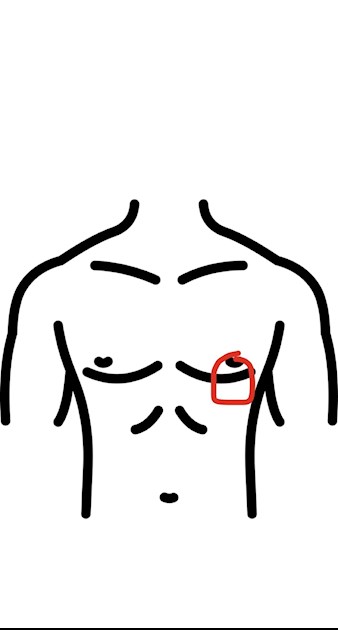TL;DR: Chest tightness/pain feels like having a tennisball right underneath the ribcage, and not like a general tightness across the chest.
Good morning! I have been suffering from asthma my entire life but only really felt problems when exercising. Recently symptoms like coughing, phlegm and chest tightness have been showing without exercise. I am worried about the chest tightness, as this is a symptom that I’ve never had before in my 26 years of asthma experience. I went to the GP last Thursday who briefly listened to my lungs (consultation lasted 2 mins max) and concluded that there was no infection and that it was probably asthma. She prescribed Innovair and Bricanyl. After 3 days of innovair and only a small improvement I am not entirely convinced she is right, and I thought that maybe you guys can help clarify wether or not the feelings I have in my chest are normal asthma symptoms.
My main concern is that when I read about asthmatic chest tightness, it always seems to be described as tightness in the entire chest, whereas my tightness is located at a very specific region , the size of a tennis ball, in fact the feeling of having a tennis ball in my chest accurately describes the feeling (see photo).
Is it normal to have chest pain/tightness in a very specific area, and is this area even where the left lung is located?
Best regards, Christoffer
